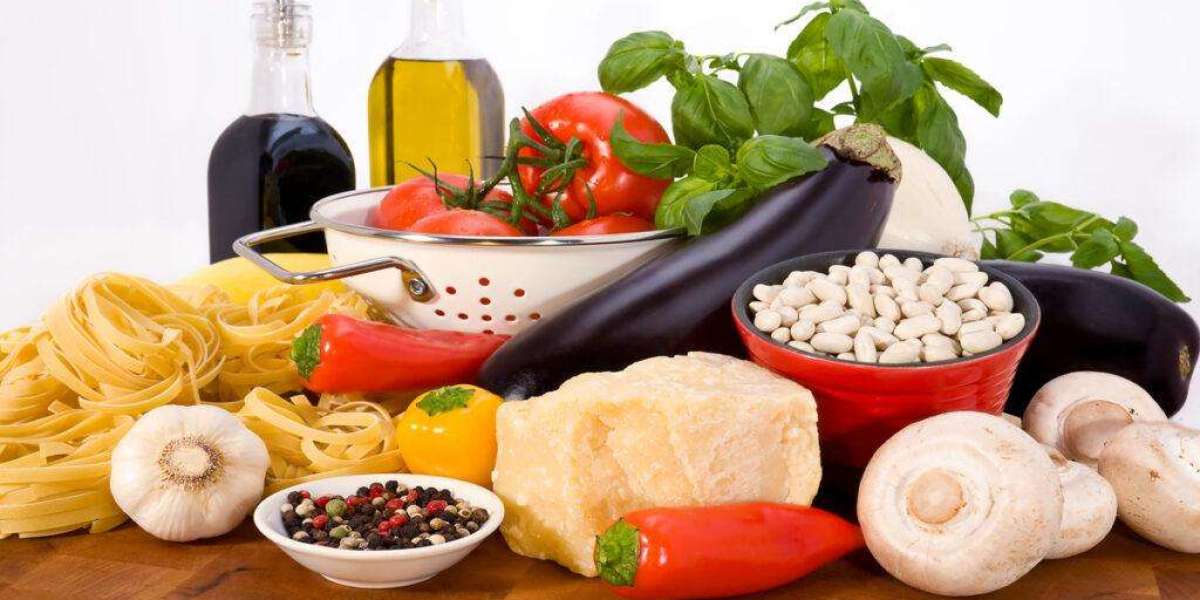food ingredient distributors are essential intermediaries that connect ingredient manufacturers with food producers. They play a crucial role in ensuring the timely and efficient supply of ingredients used in the creation of food products. These distributors not only provide raw materials but also offer expertise in logistics, quality control, and regulatory compliance. Without them, food manufacturers would face significant challenges in sourcing and managing the ingredients necessary for production.
What Are Food Ingredient Distributors?
Food ingredient distributors are companies or organizations that procure ingredients from various suppliers and distribute them to food manufacturers, processors, and other food-related businesses. These distributors handle a broad range of ingredients, including basic commodities like flour and sugar, specialized ingredients such as flavorings and colorants, and functional ingredients like preservatives, vitamins, and plant-based proteins. The distributors ensure that these ingredients are delivered in optimal condition, meeting safety, regulatory, and quality standards.
Functions and Responsibilities of Food Ingredient Distributors
The primary role of food ingredient distributors is to supply food manufacturers with the ingredients they need for production. However, their responsibilities extend far beyond just providing products:
Sourcing Ingredients:
Distributors source ingredients from suppliers, which may include manufacturers, farmers, or global suppliers. They ensure that a broad range of ingredients—whether essential or niche—are available to meet the diverse needs of food manufacturers.Storage and Inventory Management:
After sourcing the ingredients, distributors store them in warehouses, taking great care to ensure proper storage conditions to maintain ingredient quality. For instance, perishable items like dairy products or meat require refrigeration, while dry goods such as grains and spices are stored in a cool, dry environment.Logistics and Delivery:
Distributors are responsible for delivering ingredients from suppliers to food manufacturers. They manage transportation, packaging, and delivery schedules to ensure that ingredients are delivered in a timely manner and in proper condition.Quality Control and Safety:
One of the most critical responsibilities of food ingredient distributors is to ensure that ingredients meet the necessary food safety and quality standards. They conduct quality checks on ingredients upon arrival and throughout their storage, testing for potential contaminants or inconsistencies. This ensures the safety and consistency of the final food products.Regulatory Compliance:
Food ingredient distributors must comply with various regional and global regulations regarding food safety, labeling, and packaging. These regulations help prevent foodborne illnesses, maintain consumer safety, and protect the integrity of the food supply chain.Innovation and Product Development:
In response to emerging food trends and consumer preferences, many food ingredient distributors work with food manufacturers to help create new products. Whether developing plant-based alternatives or gluten-free options, distributors can offer ingredients that support innovation in the food industry.
Types of Ingredients Distributed
Food ingredient distributors manage an extensive range of ingredients, which can be classified into several categories:
Basic Ingredients:
These ingredients are fundamental to most food products and include flour, sugar, oils, salt, and starches. They are used in a wide variety of processed foods, from baked goods to snacks and beverages.Flavorings and Seasonings:
Distributors also supply flavorings and seasonings like spices, herbs, and extracts. These ingredients are used to enhance the taste and aroma of food products, contributing to the distinct flavor profiles of different foods.Preservatives and Additives:
Preservatives and additives are vital to extending shelf life and maintaining the appearance and texture of food. Emulsifiers, stabilizers, colorants, and preservatives are just some of the ingredients provided by distributors to ensure food products remain safe and fresh over time.Functional Ingredients:
With the growing demand for healthier and more nutritious foods, functional ingredients like vitamins, minerals, fiber, and plant-based proteins are becoming increasingly popular. Distributors provide these ingredients to food manufacturers to help enhance the nutritional value of their products.Specialty Ingredients:
Distributors also supply specialty ingredients for niche markets, such as gluten-free, organic, or allergen-free products. These ingredients cater to specific dietary needs, helping manufacturers meet the diverse demands of consumers.Sweeteners:
Food ingredient distributors provide a range of sweeteners, including natural sugars, artificial sweeteners, and low-calorie options. These are used to add sweetness to a variety of products, from snacks and desserts to beverages.
Why Are Food Ingredient Distributors Important?
Food ingredient distributors play a vital role in the food production process, offering several benefits to food manufacturers and the broader food industry:
Efficiency and Convenience:
Distributors streamline the supply chain by managing the procurement, storage, and delivery of ingredients. Food manufacturers benefit from a single point of contact for a wide variety of ingredients, reducing the complexity of ingredient sourcing.Cost Savings:
By purchasing ingredients in bulk, distributors are often able to negotiate better pricing with suppliers, which can result in cost savings for food manufacturers. These savings can help reduce production costs and make final products more affordable for consumers.Regulatory Compliance:
Distributors help food manufacturers navigate the complex and evolving landscape of food safety regulations. They ensure that the ingredients they supply meet all necessary safety standards, reducing the risk of foodborne illnesses and product recalls.Innovation:
As consumer preferences shift, food ingredient distributors provide manufacturers with new and innovative ingredients that support emerging food trends. Whether it’s plant-based ingredients, low-sugar alternatives, or functional foods, distributors help manufacturers stay ahead of the curve.Global Sourcing:
Many food ingredient distributors source ingredients from across the globe, enabling food manufacturers to access ingredients that may not be available locally. This global reach is especially important for manufacturers seeking rare or specialty ingredients for their products.
Challenges Faced by Food Ingredient Distributors
Despite their importance, food ingredient distributors face several challenges in their operations:
Supply Chain Disruptions:
External factors such as natural disasters, pandemics, or trade conflicts can disrupt the timely delivery of ingredients. Distributors must develop contingency plans to mitigate these risks and ensure a steady flow of ingredients to manufacturers.Price Fluctuations:
The cost of raw materials can fluctuate due to factors like market demand, climate change, and geopolitical events. Distributors must navigate these fluctuations and ensure that manufacturers can continue to operate efficiently without significant price increases.Regulatory Complexity:
Different countries have different food safety and labeling regulations, making it difficult for distributors to maintain compliance across multiple regions. This requires careful attention to detail and regular updates to ensure adherence to ever-changing rules.Sustainability:
As sustainability becomes a more significant concern for consumers, distributors are under increasing pressure to source ingredients responsibly. This includes ensuring that ingredients are produced ethically and sustainably, with minimal environmental impact.
The Future of Food Ingredient Distribution
The food ingredient distribution industry is poised to evolve in response to emerging trends and consumer demands. The rise of plant-based eating, clean-label products, and functional foods will drive continued demand for specialized ingredients. Additionally, technological advancements such as supply chain automation and blockchain will enable distributors to improve efficiency, transparency, and traceability in the food supply chain.
In conclusion, food ingredient distributors play a vital role in the food industry, ensuring that manufacturers have the ingredients they need to create high-quality, safe, and innovative food products. They are integral to the smooth functioning of the food supply chain, helping to meet consumer demands and navigate the challenges of an ever-changing market.












